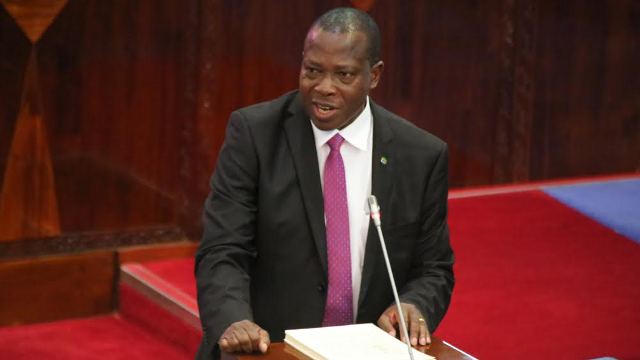DECLINE of cargo volume at Dar es Salaam Port, slow pace of executing projects and sickening life yesterday rocked the National Assembly, with legislators calling for prompt remedial strategies.
Members of Parliament (MPs) from both the ruling party and opposition camp raised a red flag on the likely disconsolate life ahead should the government fail to engage the business community and other stakeholders in the deliberation of some critical economic issues.
Debating the Development Plan Proposal and Budget Framework for 2017/2018, the lawmakers appreciated the government’s move to intensify tax collection system in the country as praiseworthy but said, “some areas needed revisiting.
” Mr Ahmed Ali Salum (Solwa-CCM) decried the dwindling cargo volume at the Dar es Salaam port due to introduction of Value Added Tax (VAT) on transit cargo, among others.
He advised the government to engage the business community and other stakeholders in devising the best ways to manage the country’s major see gateway, which was previously handling substantial amount of cargo. Mr Salum noted that the cargo decline at the port has led to many people losing jobs while the government revenues also dropped drastically.
“We must look at this issue with the seriousness it deserves ... people are not happy out there, life is hard. No money, no business...,” he claimed, appealing to the cabinet members to tell President John Magufuli about the real situation on the ground. He asked the government to fully engage the private sector for the success of its plan on industrial based economy, lest the arrangement remains a mere political rhetoric.
The lawmaker said the cotton farming, for instance, employs about 16 million people in the Lake Zone regions, charging that it was high time the government considered establishing more ginneries and textiles in the regions. Kigoma Urban MP on ACT-Wazalendo ticket, Mr Zitto Kabwe (pictured), pushed for team work between the executive and the Parliament, saying that the two pillars were currently ‘ignoring each other’.
“The government and Parliament are not together in the implementation of the country’s development plans ... it’s either the Parliament does not under s tand the executive or vice versa,” he asserted, cr i t ici s - ing the development plan proposal for failure to state how the government was prepared to finance higher education.
He said all countries with vision to develop must have scholarship programmes for its students. The outspoken MP questioned the increased wage bill amid government claims that it has flushed out phantom workers from the payroll, wondering over the contradicting statements on wage bills. He said while monthly economic review by Bank of Tanzania (BoT) indicates that the wage bill soared by 78bn/- , other government officials give different version.
“We need to know what is exactly going on ... you have verified workers and removed ghost employees but reports show that wage bill has increased instead of decreasing,” Mr Zitto noted. Mr Sixtus Mapunda (Mbinga Urban-CCM) hailed the document, which he said gives hopes of driving Tanzania from developing to middle income country.
He, however, quickly hinted that the proposal has failed to highlight the previous plan, which could have been used as a roadmap. “The (finance and planning) minister (Philip Mpango) should have told us how the government implemented the previous plan ... we need to know areas where we succeeded or failed,” he noted.
Mr Mapunda proposed for more efforts towards generation of reliable power, qualified personnel, stable financing and reliable supply of raw materials for the country to succeed in its plan for industrial based economy.
He further pushed for timely execution of flag projects, including Liganga Iron Ore and Mchuchuma Coal Mine, expressing discontentment over the pace at which the government is implementing the earmarked projects.
Dr Raphael Chegeni (Busega-CCM) advised the government to consider incorporating MPs’ views in the plans, charging that despite positive contributions from the legislators on improvement the tabled plans in the House, most of the useful views were ignored.
Dr Chegeni tasked the government to ensure that economic growth is not only facts and figures but has trickledown effects. The government on Tuesday unveiled the 32.946trn/- National Development Plan Proposal and Budget Framework for 2017/2018, with special focus on execution of various flagship projects.
Presenting the framework, Finance and Planning Minister, Dr Philip Mpango, said the 19.782tri/- is planned for recurrent expenditure, with the remaining 13.164trn/- that accounts for 40 per cent of the total budget directed to development projects. Under the new proposal, the government aims at raising its expenditure next year by about 12 per cent from this financial year’s 29.54tri/-.
Source:DailyNews
Life hardship, dwindling cargo at Dar Port rock Parliament
 Reviewed by
on
10:47:00 PM
Rating:
Reviewed by
on
10:47:00 PM
Rating:
 Reviewed by
on
10:47:00 PM
Rating:
Reviewed by
on
10:47:00 PM
Rating:















No comments: